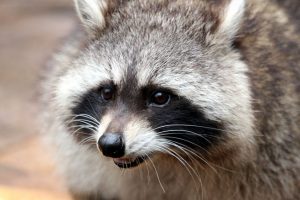 If you see a raccoon that has a slow, staggering walk, it’s probably a sign that you are looking at a sick raccoon. A healthy raccoon will look busy as it goes through its business foraging for food, nesting or caring for its young. Other signs to look for to tell if a raccoon has developed rabies or distemper or something else include:
If you see a raccoon that has a slow, staggering walk, it’s probably a sign that you are looking at a sick raccoon. A healthy raccoon will look busy as it goes through its business foraging for food, nesting or caring for its young. Other signs to look for to tell if a raccoon has developed rabies or distemper or something else include:
- Foaming at the mouth. Once an animal has gotten rabies, the virus will spread to the salivary glands. The animal will excrete the virus in its saliva, causing a foamy appearance.
- Making odd noises. Healthy raccoons will make high pitched chittering noises. Sick raccoons will make any number of different noises as the virus ravages the body
- Difficulty moving. Virus often causes paralysis in the legs.
- Uncharacteristic behaviour. If a raccoon approaches you it’s not necessarily a sign it’s infected but it could be.
- It looks sick. Rabies is an awful disease. It really tears up an animal. The signs of late stage rabies are obvious.
- You are seeing it in the day. Although not a sure sign, healthy raccoons are generally nocturnal.
Remember, if you see a rabid animal, you can’t help it, it’s going to die. You can’t comfort a rabid animal; its mind is gone. Don’t approach this animal as it could attack you. The same thing goes for pets, don’t let your pets interact with wildlife.
If you have raccoons in or uncomfortably close to your home contact a professional at Affordable Critter Solutions. We are your family owned and operated wildlife removal pros. 407-947-8982
